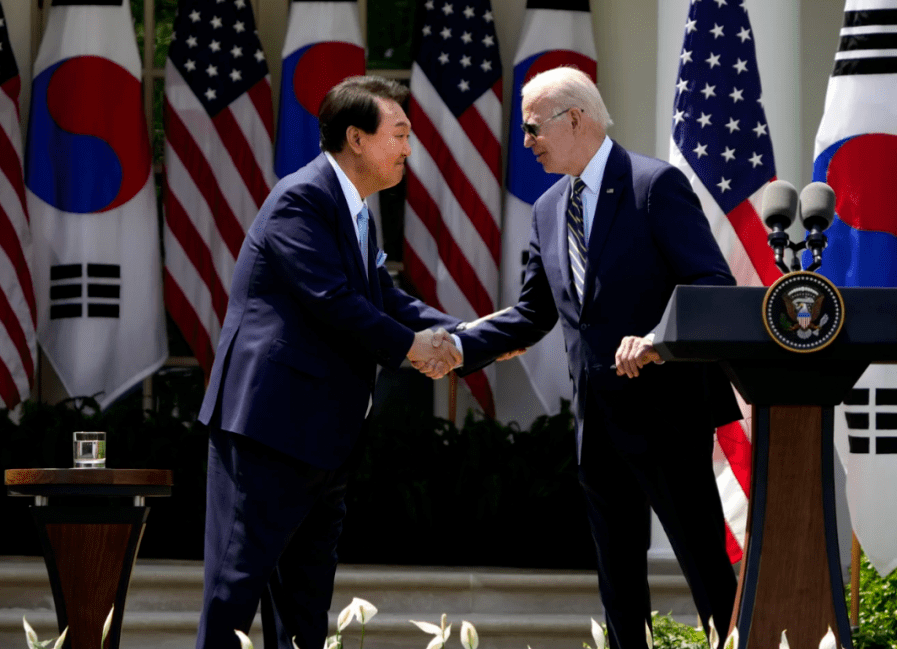Richard Javad Heydarian, Professorial Chairholder in Geopolitics, Polytechnic University of the Philippines
May 16, 2023
The U.S. and the Philippines held their first 2+2 Ministerial Dialogue in Washington, D.C. in seven years, with the aim to strengthen strategic cooperation and mark a new era of partnership. Discussions included the ongoing Taiwan crisis and the Philippines' announcement of opening four additional bases to U.S. troops under the Enhanced Defense Cooperation Agreement (EDCA). Philippine President Ferdinand Marcos Jr. has assured that these bases will not be used for offensive purposes in the event of a Sino-American conflict over Taiwan, despite concerns of dependence and geopolitical provocation.
Yan Xuetong, Distinguished Professor, Tsinghua University
May 16, 2023
The Indo-Pacific Economic Framework adopted by the United States last year has led to a shift in the way East Asian countries perceive their relations with the world’s two great powers. The notion of reliance on China for economics and on the U.S. for security has begun to tilt westward.
Chen Jimin, Guest Researcher, Center for Peace and Development Studies, China Association for International Friendly Contact
May 16, 2023
China and the United States are showing early signs of rapprochement on major strategic issues, offering hope for positive movement in the future. But a gap remains between the Biden administration’s rhetoric and its deeds. Practical action to fulfill policy commitments is a crucial first step toward trust.
Liang Qianyu, Doctoral Candidate at the Institute of Area Studies, Peking University
Zhai Kun, Professor at School of International Studies; Deputy Director of Institute of Area Studies, Peking University
May 11, 2023
Generally speaking, the relationship between China and Southeast Asian countries is positive, which adds a degree of certainty in an uncertain world. However, if President Ferdinand Marcos Jr. loses his way over the South China Sea and Taiwan, new uncertainty will come.
Jade Wong, Senior Fellow, Gordon & Leon Institute
May 04, 2023
Chinese President Xi Jinping’s outreach to the president of Ukraine, Volodymyr Zelenskyy, could be a game-changer. The call was welcomed by Zelenskyy, who called it “long and meaningful.” As Beijing steps into its role as a global peacemaker, the world is taking notice.
Philip Cunningham, Independent Scholar
May 03, 2023
Some seventy diplomats recently gathered in China’s Great Hall in efforts to increase international cooperation, and it’s imperative not to miss the power of visual pomp used as a tool of persuasion, as evidenced in the televised coverage of the event.
Brian Wong, Assistant Professor in Philosophy and Fellow at Centre on Contemporary China and the World, HKU and Rhodes Scholar
May 03, 2023
China’s recent diplomatic wins could be indicative of the type of world it hopes to build - one where a number of stakeholders have more equal footing rather than being led by one powerful hegemon.

Li Ning, Research Fellow at Center for Asia-Pacific Studies, Shanghai Institutes for International Studies
May 03, 2023
No leader of a U.S. ally has ever made such a show of fidelity before a trip to Washington. Yoon swiftly patched up relations with Japan, announced military aid to Ukraine and made comments on Taiwan.
Wu Baiyi, Former Director of the Institute of European Studies, Chinese Academy of Social Sciences
May 03, 2023
Europe faces three imperatives: It needs to seize the opportunity presented by China’s post-pandemic reopening; it needs China as a stabilizer, in light of the unpredictable prospect of peace in Eastern Europe; and it needs to rebalance its relationship with the United States because of dramatic international shifts in recent years.

Zhou Zhiwei, Senior Research Fellow and Executive Director of Center for Brazilian Studies, CASS
May 03, 2023
Brazil’s president indicates that economic recovery in Latin America is likely to be driven by China. Existing connections are deep and will be resilient against political or international interference. Renewed South-South cooperation is one hopeful outcome.
Back to Top

- China-US Focus builds trust and understanding between the U.S. and China through open dialogue among thought leaders.
- Our Offerings
- Topics
- Videos
- Podcasts
- Columnists
- Research Reports
- Focus Digest
- Stay Connected
-
Thanks for signing up!
- Get the latest stories from China-US Focus weekly.